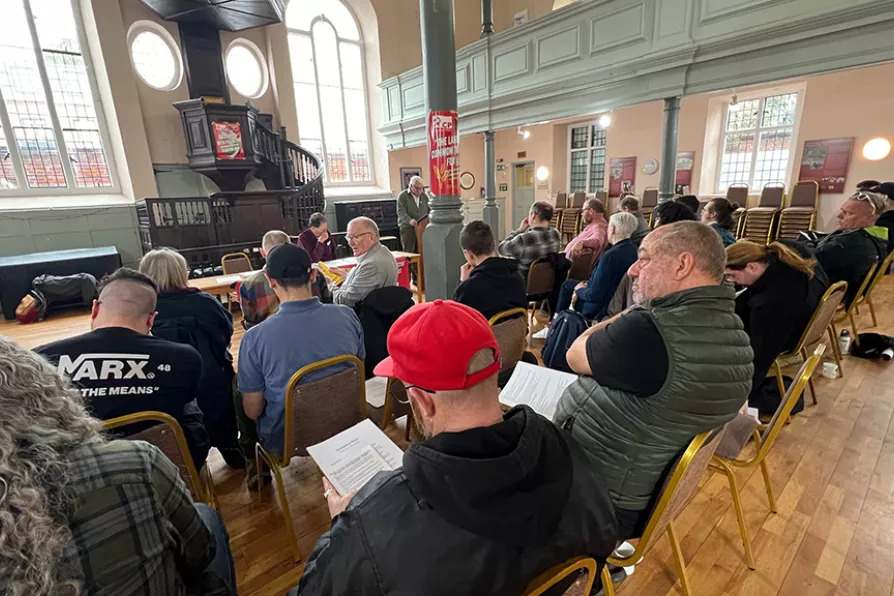Israel’s recognition of Somaliland has little to do with self-determination and far more to do with strategy, offering Israel a potential military foothold near Yemen, says JE ROSENBERG

 Delegates at the congress in Bury St Edmunds
Delegates at the congress in Bury St Edmunds
COMMUNISTS from across the East of England gathered in Bury St Edmunds at the weekend to hold their district congress. Two years on from the previous congress, it has been a busy period of rebuilding party organisation, campaigning and standing in local and general elections.
Welcoming delegates to the town on behalf of the trades council, secretary Kevin Nunn, a Unison activist in a local hospital, pointed to the history of a wonderful Suffolk town “which has its own class structure and conflicts with large local employers such as the landmark Greene King brewery shedding jobs.”
District chair Steve Marsling and secretary Phil Katz opened the proceedings with a report covering local activism in areas as far apart as Bedford and Milton Keynes, Basildon, Norwich and Cambridge.
Katz said: “Delegates are united by a common aim: to rebuild local labour movements, to unite community and union campaigns and to face down the challenge of Reform UK in working-class areas.”
In particular, he told the congress, “the Communist Party is expanding its campaigning reach to market towns where we would prioritise ending the isolation brought on as a result of monopoly transport control with modern solutions based on public ownership, the failure to fund and equip councils to build new homes and the decline in public services. Access to health services is now a major concern.”
Communists agreed policies to campaign for a regional assembly with fundraising powers to support planned local intervention in the economy, a plan to revitalise town centres and village life and to extend trade unionism into the rural, food, multiple retail, fishing and horticulture sectors. The congress proposed convening a conference of trades councils to develop an alternative economic strategy for the region.
The Communist Party district recently published a rural charter, The Land is a Common Treasury for All, translated into Polish, Russian, Chinese, Portuguese and Spanish. This calls for workers to unite and for an amnesty for foreign migrant workers facing super-exploitation.

MARK JONES responds to issues raised in the recent report from Richard Hebbert on the Communist Party’s Congress debate on nuclear power

OLIVER SNELLING, a south London stonecarver and yeoman stonemason, relates how he is helping bring about a new festival next month












